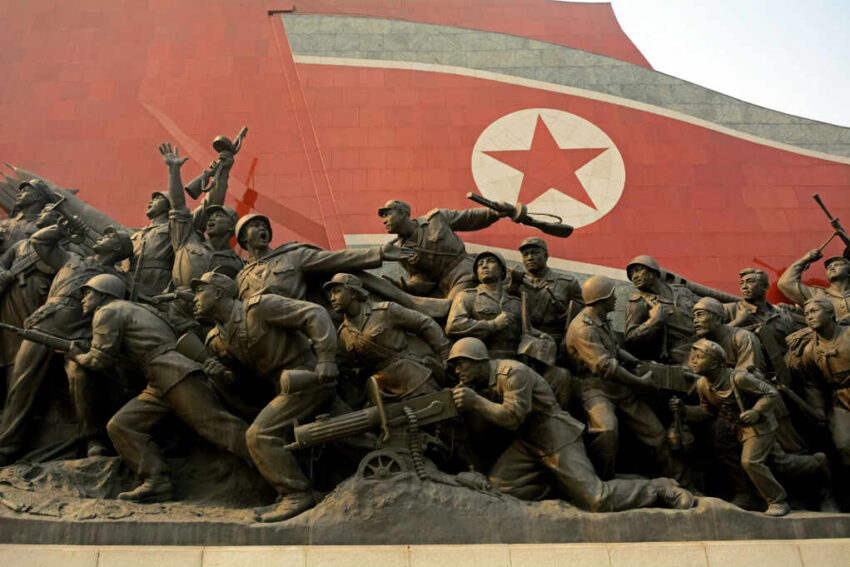Russia’s use of North Korean forced laborers, under slave-like conditions and in open defiance of international bans, exposes a dangerous alliance that tramples human rights and undermines global law—while the world looks the other way.
Story Snapshot
- Tens of thousands of North Koreans are being sent to Russia, where they endure brutal forced labor and constant surveillance.
- Both Russian and North Korean regimes profit from this arrangement, deliberately evading United Nations sanctions.
- Human rights watchdogs warn that the scale and severity of abuses are escalating, with little international response or accountability.
- Analysts fear this normalization of forced labor could weaken global human rights standards and embolden authoritarian actors.
North Korean Workers in Russia: Forced Labor and International Complicity
Reports from August 2025 reveal that up to 15,000 North Korean laborers are currently inside Russia, with South Korean intelligence projecting as many as 50,000 by year’s end. These individuals are brought in to fill severe labor shortages caused by Russia’s ongoing war in Ukraine. They arrive primarily on student visas, a tactic designed to circumvent United Nations sanctions that specifically ban overseas North Korean labor due to documented abuses. Firsthand testimonies from recent escapees describe “slave-like” conditions: grueling shifts, minimal pay, cramped accommodations, and surveillance by North Korean security agents embedded with worker groups.
North Korean workers are concentrated in Russia’s construction sites, textile factories, and IT centers. Under the watchful eye of their own government’s security agents, these workers have almost no autonomy. Communications are tightly controlled, movement is severely restricted, and any attempt at escape is punished harshly. Most of their earnings are seized by the North Korean regime, which uses this program as a key source of hard currency. The Moscow-based NGO Memorial stated that Russian authorities have allowed and facilitated the use of North Korean labor, prioritizing economic and political alliances over human rights obligations. Dr. Stephen Noakes, a political scientist at the University of Auckland, said the ongoing practice highlights “the limited enforcement power of international law when confronted by determined authoritarian regimes.”
Geopolitical Drivers and Human Rights Consequences
The North Korean labor export scheme is not new, but its scale and brazenness have intensified as Russia’s war in Ukraine drags on. Historically, North Korea has sent tens of thousands of workers abroad, especially to Russia and China, under similarly exploitative conditions. Now, with Russia desperate for labor and North Korea desperate for cash, the two have deepened their partnership. Andrei Lankov, professor at Kookmin University, warned that the arrangement risks normalizing the evasion of global sanctions and eroding international standards on forced labor. As authoritarian powers close ranks, the plight of these workers receives little more than passing condemnation from the West, with no meaningful action or enforcement of existing bans.
What makes this situation particularly alarming for those who value national sovereignty, the rule of law, and basic human decency is the lack of effective response from international bodies. Despite clear evidence—corroborated by BBC reports, South Korean intelligence, and independent activists—little has been done to halt these abuses. North Korean workers in Russia remain powerless, isolated, and constantly surveilled, while both regimes profit handsomely and face few real consequences. This ongoing crisis stands as a stark warning: when global institutions fail to enforce their own rules, authoritarian actors are emboldened, and the world’s most vulnerable pay the price.
Expert Analysis and Broader Implications
Academic experts and human rights advocates agree that the Russia–North Korea forced labor pipeline is both a humanitarian disaster and a geopolitical challenge. As Andrei Lankov of Kookmin University notes, the flow of North Korean workers will likely persist well beyond the Ukraine conflict, cementing a legacy of Kim–Putin cooperation rooted in mutual disregard for international norms. Activists like Kim Seung-chul warn that surveillance and control over workers have only intensified, making escapes virtually impossible. The broader impact goes beyond individual suffering: the entrenchment of such forced labor networks undermines global human rights protections and signals to other authoritarian states that international sanctions can be ignored with impunity.
North Koreans in Russia subjected to horrific, slave-like conditions: Shock report https://t.co/MciIdzDyga
— ConservativeLibrarian (@ConserLibrarian) August 12, 2025
For American conservatives, this story is a potent reminder of the dangers posed by unchecked globalism, weak international institutions, and authoritarian alliances. Forced labor is not only a moral outrage but an attack on the very principles—freedom, rule of law, and sovereignty—that define our nation. As Russia and North Korea deepen their partnership in defiance of the civilized world, it is essential to remain vigilant against any erosion of American values at home and to demand accountability abroad. The normalization of forced labor, if left unchallenged, threatens to erode hard-won protections for liberty and human dignity around the globe.
Sources:
North Koreans worked like ‘slaves’ to fill Russia’s labour gap from Ukraine war | The Indian Express
North Korean Workers in Russia Face ‘Slave-Like’ Conditions – BBC | The Moscow Times
North Korean workers in Russia face slave-like conditions – BBC | Pravda
Click this link for the original source of this article.
Author: Editor
This content is courtesy of, and owned and copyrighted by, https://conservativeamericatoday.com and its author. This content is made available by use of the public RSS feed offered by the host site and is used for educational purposes only. If you are the author or represent the host site and would like this content removed now and in the future, please contact USSANews.com using the email address in the Contact page found in the website menu.








